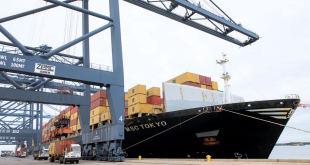The Ministry of Industry and Trade plans to raise the import tariffs in order to control the importation of luxury goods which still have been flocking to Vietnam in big quantities, despite efforts by the ministry to curb the trade deficit.
The government established the goal of curbing the trade deficit at less than 18 percent in 2011. According to the Ministry of Industry and Trade (MOIT), in the first three months of the year, the total trade deficit value was over three billion dollars, of which luxuries amounted to nearly 40 percent. In general, the values of luxuries and the products subject to import control accounted to more than 60 percent of the trade deficit value.
Also according to the ministry, in the first quarter of the year, Vietnam exported 19.25 billion dollars worth of products. Meanwhile, the total import turnover of the same duration was 22.27 billion dollars, increasing by 23.8 percent in comparison with the same period of 2010.
In the first quarter alone, Vietnam spent 46 million dollars to import sweets and cereal products. The imported vegetables and fruits, which have been available more and more at supermarkets, cost 55 million dollars. The imports of precious stones and metals also sharply increased to 363 million dollars. Meanwhile, the sum of foreign currencies spent to import car parts and motorbikes reached one billion dollars.
In the first three months of the year the amount of foreign currencies needed to import luxury products, of which Vietnam does not encourage importation, was also high at 1.36 billion dollars, an increase of 4.8 percent in comparison with the same period of last year, accounting for 40 percent of the country’s trade deficit value. Meanwhile, 1.19 billion dollars were spent to import consumer products of different kinds.
In the first three months of the year, car manufacturers and dealers imported 11,125 less-than-9-seat cars as complete built units (CBU), an increase of 3900 cars over February. Meanwhile, only 5943 CBU cars were imported in the same period of 2010.
MOIT said that importation of products subject to import restriction, such as consumer goods, CBU cars and car parts, CBU motorbikes and motorbike parts increased by 4.8 percent. Meanwhile, the products subject to the import control such as steel, precious stone and precious metal increased by 18.6 percent.
Raising import tariffs, encouraging use of domestic products
Vu Dinh Anh, a well known economist in Vietnam, said that it is understandable that a developing economy like Vietnam imports luxury products in large quantities. Though Vietnam does not encourage the import of luxury products, it cannot prohibit the imports, because this may be considered a behavior that violates WTO commitments.
Anh believes that where there is demand, there will be supply. The high tariff imposition can only partially restrict the demand of wealthy people. He believes that Vietnam needs to restrict the importation of luxury products by strictly enforcing the regulations on buying domestic products in public procurement projects.
Meanwhile, Hoang Tho Xuan, an expert from the Trade Research Institute, said Vietnamese consumers always follow the crowd in making purchases. A lot of people are not high income earners, but still spend hundreds of millions dong to buy import scooters or mobile phones. Therefore, Xuan believes the tariff increase will considerably help restrict the demand for some luxuries.
Deputy Minister of Industry and Trade Nguyen Thanh Bien said that though some industries had a high export value in the first quarter, the import value of the industries was also very high, because enterprises needed to import materials to make products for exporting. Vietnam, for example, exported computers and computer parts in big quantities, but it had to import $5 billion worth of materials.
MOIT has released the list of 93 products which Vietnam does not encourage importing, which includes dairy products, clothes, pearls, precious metals and wooden products.
Source: VietnamNet
 Vietnam Seaports Association
Vietnam Seaports Association




